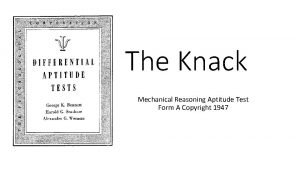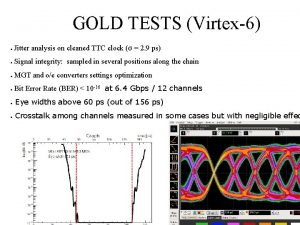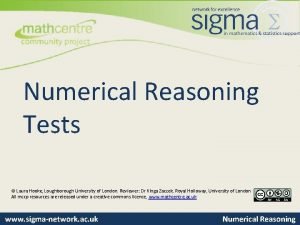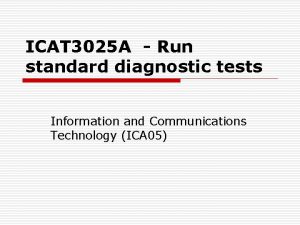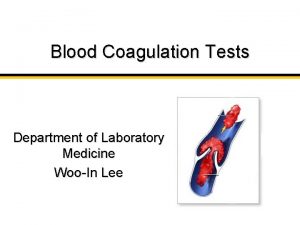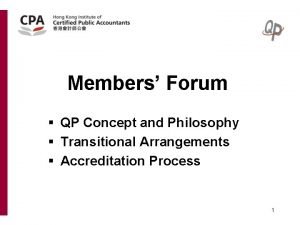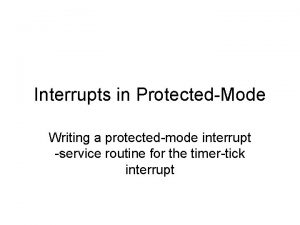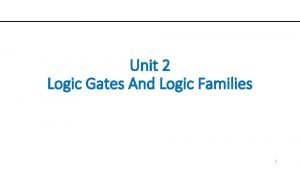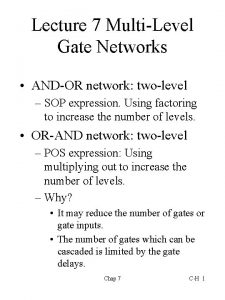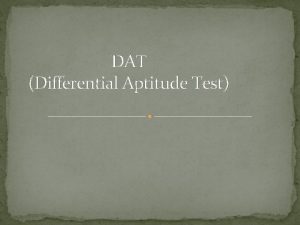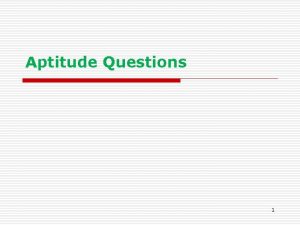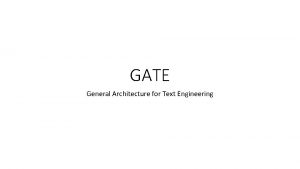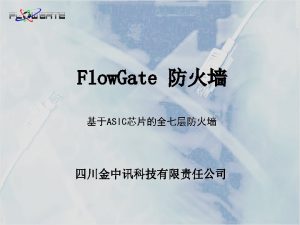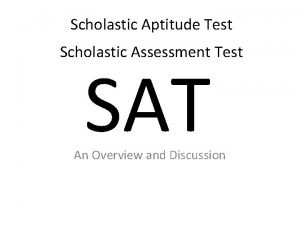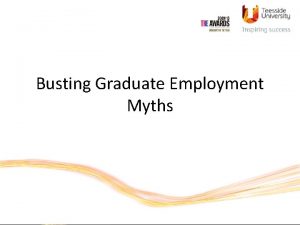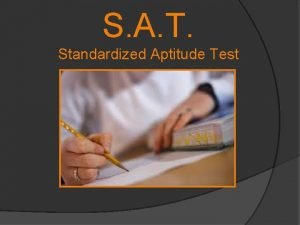What is GATE The Graduate Aptitude Test in















- Slides: 15

What is GATE ? Ø The Graduate Aptitude Test in Engineering (GATE) is an all -India examination that primarily tests the comprehensive understanding of various undergraduate subjects in engineering and science. Ø The GATE exam is conducted on behalf of the National Coordination Board – GATE, Department of Higher Education, Ministry of Human Resources Development (MHRD), Government of India.

IIT Kharagpur IIT Mumbai IIT GATE Delhi Exam Conduc IIT Guwahati Madras ting Institute IIT IISc s Bangalore Rookie IIT Kanpur

Why GATE ? Ø GATE preparation helps you appreciate , enjoy and improve knowledge of your B. E. course. Ø Increase chances of foreign placement. Ø Better quality job assured , especially if you prefer technical work. Ø Be called an IITian for life. Ø M-Tech degree is must to teach in an engineering college. Ø In short better career and higher salary.

Reasons for choosing GATE ü Getting placed in PSUs(Public Sector Undertakings i. e. , government-owned companies). ü Getting M-tech. Degree from IITs & NITs. ü GATE qualified students are also eligible for the award of Junior Research Fellowship in CSIR Laboratories and CSIR sponsored projects. ü Just for Experience.

GATE syllabus for CS/IT ENGINEERING MATHEMATICS ü Mathematical Logic: Propositional Logic; First Order Logic ü Probability: Conditional Probability; Mean, Median, Mode and Standard Deviation; Random Variables; Distributions; uniform, normal, exponential, Poisson, Binomial ü Set Theory & Algebra: Sets; Relations; Functions; Groups; Partial Orders; Lattice; Boolean Algebra ü Combinatory: Permutations; Combinations; Counting; Summation; generating functions; recurrencerelations; asymptotics ü Graph Theory: Connectivity; spanning trees; Cut vertices & edges; covering; matching; independent sets; Colouring; Planarity; Isomorphism. ü Linear Algebra: Algebra of matrices, determinants, systems of linear equations, Eigen values and Eigen vectors. ü Numerical Methods: LU decomposition for systems of linear equations; numerical solutions of non-linear algebraic equations by Secant, Bisection and Newton- Raphson Methods; Numerical integration by trapezoidal and Simpson’s rules. ü Calculus: Limit, Continuity & differentiability, Mean value Theorems, Theorems of integral calculus, evaluation of definite & improper integrals, Partial derivatives, Total derivatives, maxima & minima cont…

COMPUTER SCIENCE AND INFORMATION TECHNOLOGY ü Digital Logic: Logic functions, Minimization, Design and synthesis of combinational and sequential circuits; Number representation and computer arithmetic (fixed and floating point). ü Computer Organization and Architecture: Machine instructions and addressing modes, ALU and data-path, CPU control design, Memory interface, I/O interface (Interrupt and DMA mode), Instruction pipelining, Cache and main memory, Secondary storage. ü Programming and Data Structures: Programming in C; Functions, Recursion, Parameter passing, Scope, Binding; Abstract data types, Arrays, Stacks, Queues, Linked Lists, Trees, Binary search trees, Binary heaps. ü Algorithms: Analysis, Asymptotic notation, Notions of space and time complexity, Worst and average case analysis; Design: Greedy approach, Dynamic programming, Divide-and-conquer; Tree and graph traversals, Connected components, Spanning trees, Shortest paths; Hashing, Sorting, Searching. Asymptotic analysis (best, worst, average cases) of time and space, upper and lower bounds, Basic concepts of complexity classes – P, NP-hard, NP-complete. Cont. .

COMPUTER SCIENCE AND INFORMATION TECHNOLOGY ü Theory of Computation: Compiler Design: Lexical analysis, Parsing, Syntax directed translation, Runtime environments , Intermediate and target code generation, Basics of code optimization. ü Operating. System: Processes, Threads, Interprocesscommunication, Concurrency, Synchro nization, Deadlock, CPU scheduling, Memory management and virtual memory, File systems, I/O systems, Protection and security. ü Databases: ER-model, Relational model (relational algebra, tuple calculus), Database design (integrity constraints, normal forms), Query languages (SQL), File structures (sequential files, indexing, B and B+ trees), Transactions and concurrency control. ü Information Systems and Software Engineering: information gathering, requirement and feasibility analysis, data flow diagrams, process specifications, input/output design, process life cycle, planning and managing the project, design, coding, testing, implementation, maintenance. ü Computer Networks: ISO/OSI stack, LAN technologies (Ethernet, Token ring), Flow and error control techniques, Routing algorithms, Congestion control, TCP/UDP and sockets, IP(v 4), Application layer protocols (icmp, dns, smtp, pop, ftp, http); Basic concepts of hubs, switches, gateways, and routers. Network security – basic concepts of public key and private key cryptography, digital signature, firewalls. ü Web technologies: HTML, XML, basic concepts of client-server computing.

Difference between Percentage and Percentile q. Percentage A percentage is a number or ratio expressed as a fraction of 100. q Percentile A percentile (or a centile) is a measure used in statistics indicating the value below which a given percentage of observations in a group of observations fall. Percentile=((N-Your rank)/N)*100 N= no of peoples appeared in exam in individual stream.

GATE Exam Paper Pattern General Aptitude Engineering Mathematics Core subject • 15% Marks • 5 Questions -1 Marks • 5 Questions -2 Marks • 15% Marks for Mathematics • 70% Marks for core subject • 25 Questions -1 mark • 30 Questions -2 Mark

Changes Made In GATE 2015 The entire application process is made online. All required documents have to be scanned and uploaded on the online application system. Candidates no longer have to send anything by post. GATE score's validity is increased from 2 years to 3 years. Printed (i. e. hard-copy) score cards are no longer sent to candidates. Only a digital (i. e. soft-copy) score card can be downloaded by qualified candidates from the official GATE website.

Important Dates Of GATE 2015 Online Examination GATE 2015 Result Download of GATE 2015 Score Card • January 31, 2015 • February: 1, 7, 8, 2015 • Timings : Forenoon: 9 am to 12 Noon, Afternoon: 2 to 5 pm • March 12, 2015 at 5 pm • March 27 to May 29, 2015

Cut-Off Of GATE 2014 GATE Paper No. of Candidates Appeared Qualifying Marks (general) Qualifying Marks (OBCNCL) Qualifying Marks (SC/ST/PWD) CS Computer Science and Information Technology 155190 25 22. 5 16. 67 ME Mechanical Engineering 185578 28. 86 25. 97 19. 24 CE Civil Engineering 90872 26. 57 23. 91 17. 71 EC Electronics and Communication Engineering 216367 25. 56 23. 01 17. 04 EE Electrical Engineering 141799 25 22. 5 16. 67 XE Engineering Sciences 2532 29. 18 26. 26 19. 45 XL Life Sciences 8527 31. 04 27. 93 20. 69 GATE Paper Code

Cut-Off Of GATE 2015 No. of Candidates Appeared 115425 Qualifying Marks (general) 25. 00 Qualifying Marks (OBCNCL) 22. 50 Qualifying Marks (SC/ST/PWD) 16. 67 ME Mechanical Engineering 185758 32. 73 29. 46 21. 82 CE Civil Engineering 101429 25. 00 22. 50 16. 67 172714 25. 00 22. 50 16. 67 EC Electronics and Communication Engineering EE Electrical Engineering 125851 25. 00 22. 50 16. 67 GATE Paper Code GATE Paper CS Computer Science and Information Technology

GATE 2016 ü GATE 2016 examination will be held from last week of January 2016 to 3 rd week of February 2016, during forenoon and afternoon session on Saturday and Sundays of the alternative week ends. ü The complete examination schedule will be notified to the candidates as soon as any official information will be available.

Thank you !Your Preparation Partner
 Contoh tes prestasi dalam psikologi
Contoh tes prestasi dalam psikologi Mechanical reasoning exam
Mechanical reasoning exam Ttc electrical aptitude test
Ttc electrical aptitude test Medify bursary
Medify bursary Ucat anz prep
Ucat anz prep Ncs ucat anz
Ncs ucat anz Wiesen test of mechanical aptitude
Wiesen test of mechanical aptitude Inductive reasoning aptitude test
Inductive reasoning aptitude test Multiple aptitude test
Multiple aptitude test Icat aptitude test
Icat aptitude test Ptt aptitude test
Ptt aptitude test Hkicpa aptitude test
Hkicpa aptitude test “homer goes to college”
“homer goes to college” Trap gate vs interrupt gate
Trap gate vs interrupt gate Construct not gate using nand gate
Construct not gate using nand gate Nand gate to and gate
Nand gate to and gate

